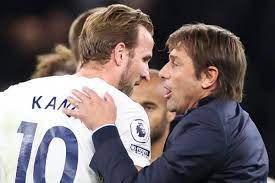By Andrew Warshaw
March 27 – Tottenham Hotspur are looking for their fourth permanent manager in as many years after the widely anticipated dismissal on Sunday of high-profile Italian coach Antonio Conte.
Conte’s days at Spurs were numbered as soon as he made an unprecedented outburst, in which he attacked the players, the culture and the ownership, in the wake of the recent 3-3 draw with bottom-placed Southampton.
Normally backroom staff go too whenever managers are dismissed but unusually, Conte’s assistant Cristian Stellini will step up as head coach for the rest of the season.
“We have 10 Premier League games remaining and we have a fight on our hands for a Champions League place,” said Tottenham chairman Daniel Levy.
“We all need to pull together. Everyone has to step up to ensure the highest possible finish for our club and amazing, loyal supporters.”
Most Spurs fans had to pinch themselves when Conte, one of the world’s most astute coaches who had won league titles with Chelsea, Juventus and Inter Milan, was appointed in November 2021.
But like so many before him, he found Spurs was the ultimate poisoned chalice.
Indeed recent data reveals that the 10 Tottenham bosses appointed in the past 20 years have between them accumulated no fewer than 61 trophies before and after managing the club. At Tottenham, collectively, the figure is just one. Hence considerable criticism from a large section of the fan base directed at the Spurs board.
Yet in truth many thought Conte, given his track record, would finally be the man to change the very culture he criticised so heavily and which led to Sunday’s dismissal. Instead, twas ever thus as Tottenham struggled for consistency for much of Conte’s early reign before a six-game unbeaten run secured an unlikely top-four finish which the Italian later described a “miracle”.
The troubles have continued this season with nine defeats and four draws in 28 league games, including a tame Champions League exit to AC Milan and an embarrassing defeat to Championship side Sheffield United in the FA Cup. There have also been legitimate concerns about the cautious, conservative playing style under Conte.
His last match in charge saw Tottenham throw away a 3-1 lead to draw at struggling Southampton with Conte, finally losing patience after bottling up his frustrations for months, launching an incendiary attack on his players and the club.
Whilst many fans might agree with much of Conte’s tirade, lobbing such a verbal hand grenade in public at the door of those running the club was only going to result in one outcome.
Conte’s exit, by mutual consent, takes the number of managerial departures in the Premier League this season to 11 – a new record.
In Conte’s defence he was forced to undergo gallbladder surgery in February whilst he also lost three close friends in Spurs fitness coach Gian Piero Ventrone, Sinisa Mihajlovic and Gianluca Vialli, – all of which must have put huge personal pressure on him.
Whether Spurs have acted prematurely – Conte’s contract was up in the summer anyway – remains to be seen. For all the furore surrounding his outburst, the club remain fourth in the Premier League, albeit having played two games more than nearest challengers Newcastle United.
As for his successor, Levy and the board can now buy time to get the man they want in the summer, with various media organisations spewing out a number of prospective candidates including Julian Nagelsmann, suddenly available after his surprise sacking by Bayern Munich.
Will Levy and the board again go down the road of a proven winner in the knowledge that most of them fall by the wayside once they try their luck at Spurs? Or will they go with a lesser-known name in order to build a long-term project?
Like everyone before him and since, former manager Mauricio Pochettino won nothing but is still beloved by a good number of Spurs fans, both for his attacking style of play and the near-miraculous run to the 2019 Champions League final despite no major recruitment in two successive transfer windows.
Levy might take the view that it’s too risky and that managers should never come back, particularly when playing staff have radically changed. He may also be unwilling, if considering whether to re-appoint the Argentine for a second spell, to admit Spurs were wrong in sacking Pochettino first time round even though Tottenham were 14th in the table at the time.
Yet in his five years at the club, Pochettino did something few, if any, other managers have done at Spurs in recent years. He gave them an identity, just as Mikel Arteta has done at rivals Arsenal, who stuck with the Spaniard despite three below-par seasons before regaining north London supremacy and now top of the league and title favourites.
Contact the writer of this story at moc.l1745362629labto1745362629ofdlr1745362629owedi1745362629sni@w1745362629ahsra1745362629w.wer1745362629dna1745362629

